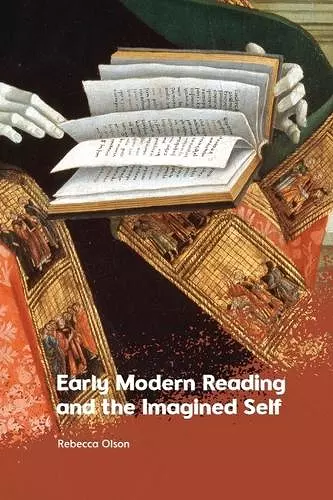Early Modern Reading and the Imagined Self
Format:Hardback
Publisher:Edinburgh University Press
Published:31st Jul '25
Should be back in stock very soon

Who do we imagine we are reading 'with' when we read alone? Early Modern Reading and the Imagined Self proposes that we cannot responsibly read early modern texts without self-awareness of our own reading habits. Moreover, we cannot be fully self-aware of our own reading habits if we do not understand the ways they continue to be shaped by the social dynamics supported and proliferated by early modern texts. Analysing key sixteenth-century printed editions, including Utopia, The Boke of the Cyte of Ladyes, Titus Andronicus, and Politeuphuia, this study provides examples of how printed Tudor fiction encourages readers to position themselves in relation to imagined others, often in ways that critique the exclusive communities associated with Tudor humanism. Subsequent editions also encouraged audiences to read 'with' a wide range of speculative fellow readers, yet also created new opportunities to exercise implicit bias against people of their own making.
Early modern humanist traditions and practices are generally associated with the rediscovery of the classics, which was made possible by a fresh impulse to search the archives for ancient manuscripts and by the sustained effort to transcribe, edit and annotate them for dissemination through the new medium of print. Accounts of this momentous shift towards more confidently secular models of education, statecraft and literary production have only recently begun to look beyond the exclusive elitism of the republic of white, European men of letters that it seemingly supported. Olson makes a pivotal intervention in this direction by drawing our attention to the ways in which the earliest printed Tudor editions of classical or classically informed texts, ranging from More’s Utopia to Shakespeare’s Titus Andronicus, were in fact ‘upfront’ about the need to ‘recognize a wider reading public’ and took ‘seriously the task of seeing new readers’. Olson’s book is not only an important contribution to recent revisionary histories that aim to ‘decolonise’ the curriculum but also a timely and urgent appeal addressed to modern editors to emulate the efforts of their Tudor predecessors by challenging the ‘status of editing as a gate-keeping practice’. -- Sonia Massai, Sapienza, University of Rome
ISBN: 9781399541374
Dimensions: unknown
Weight: unknown
256 pages